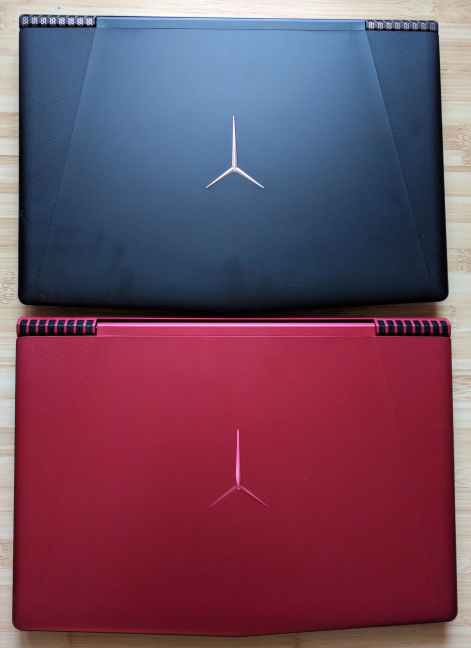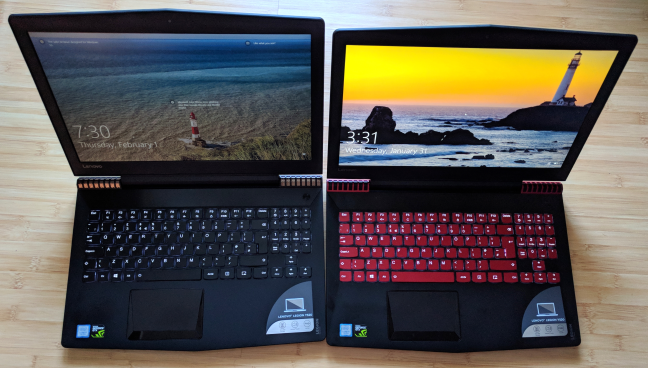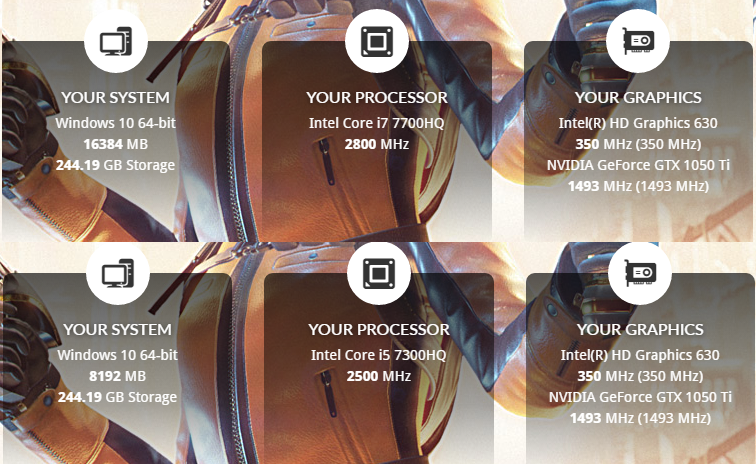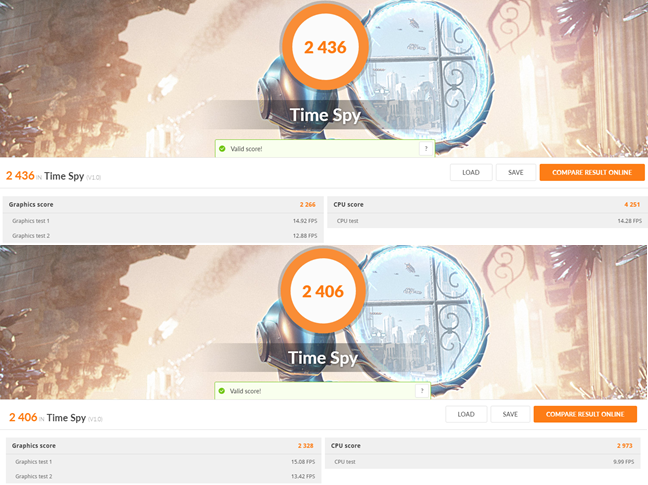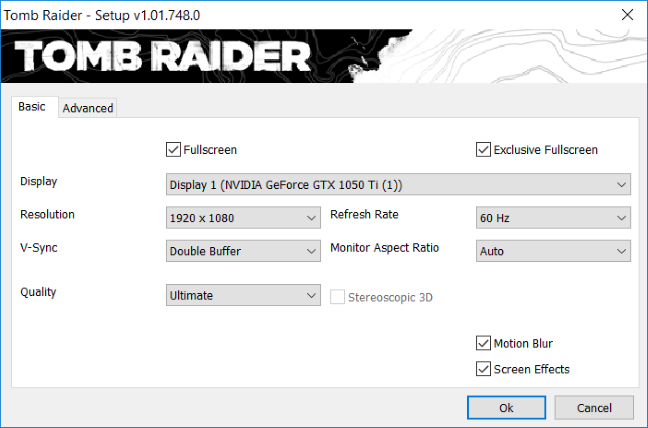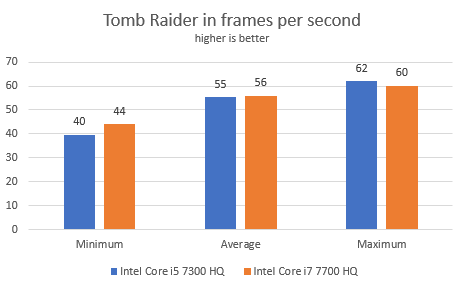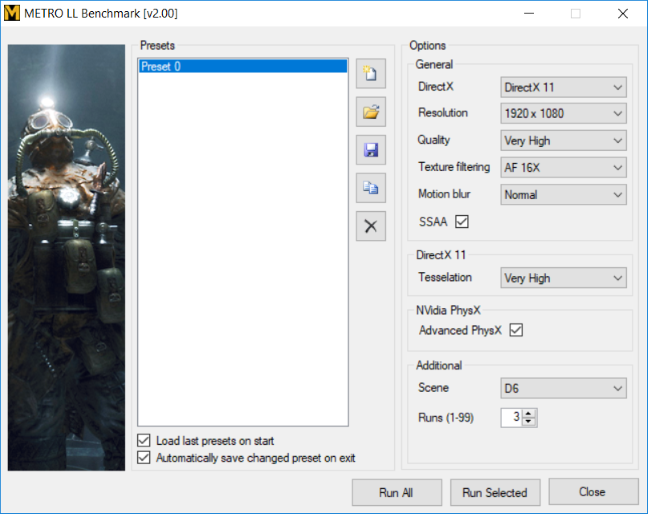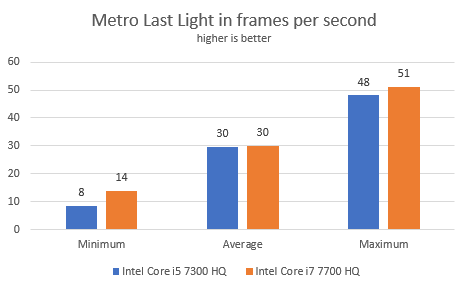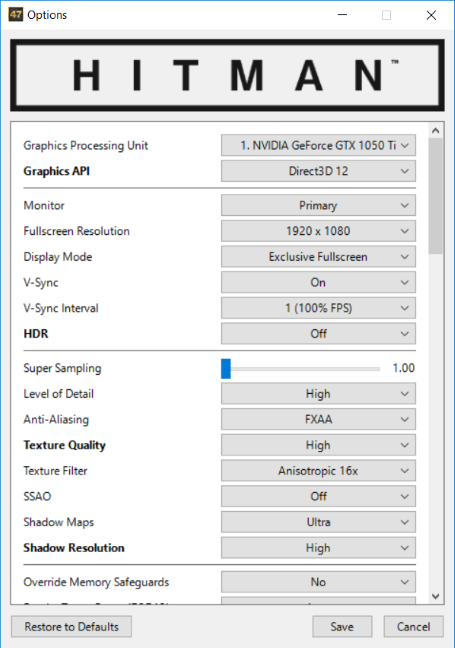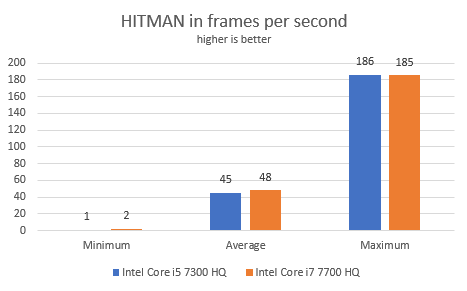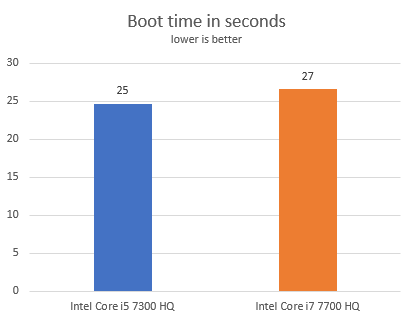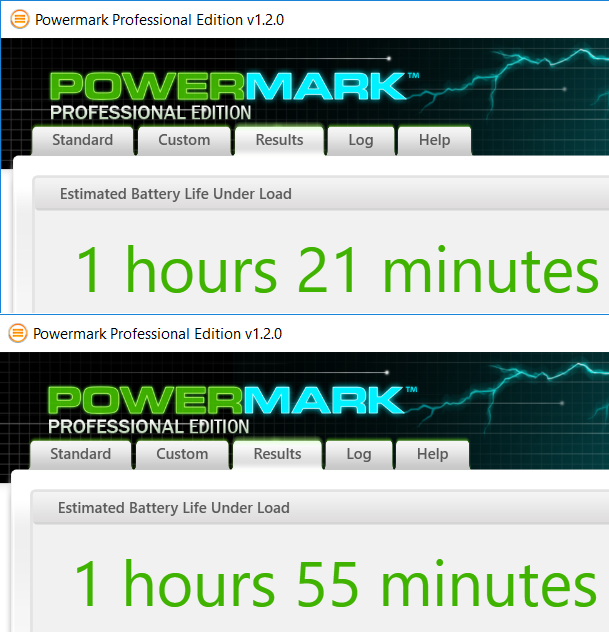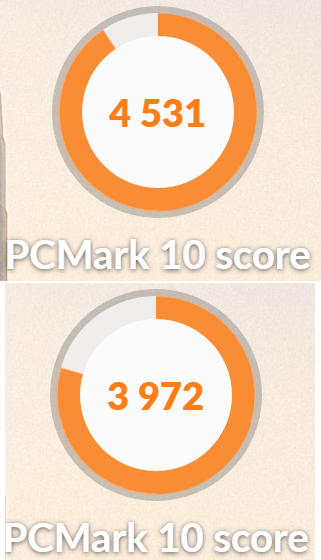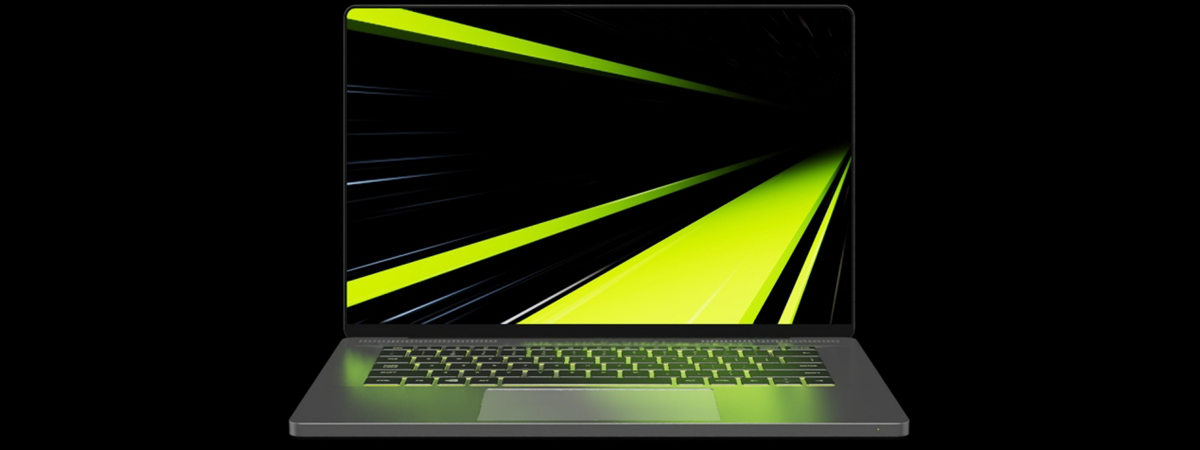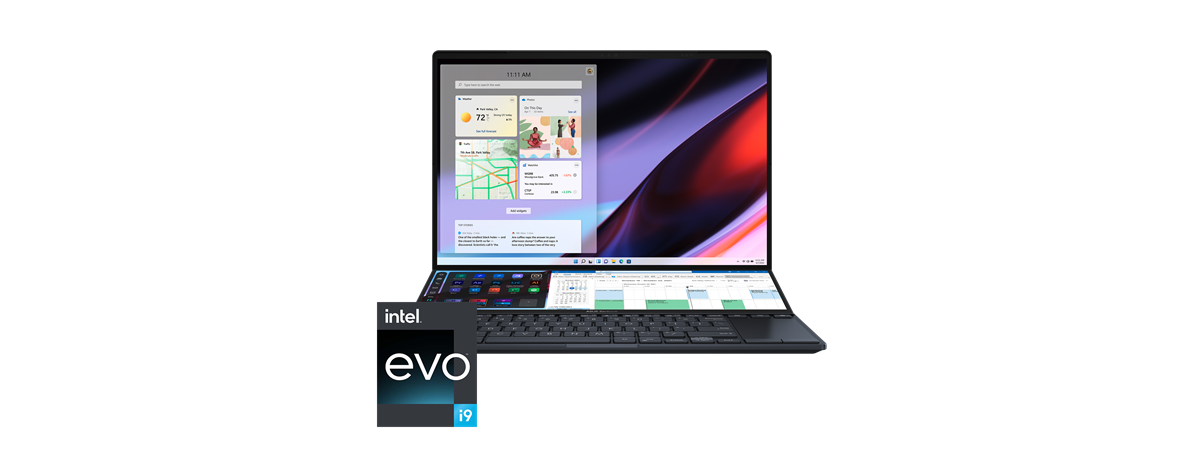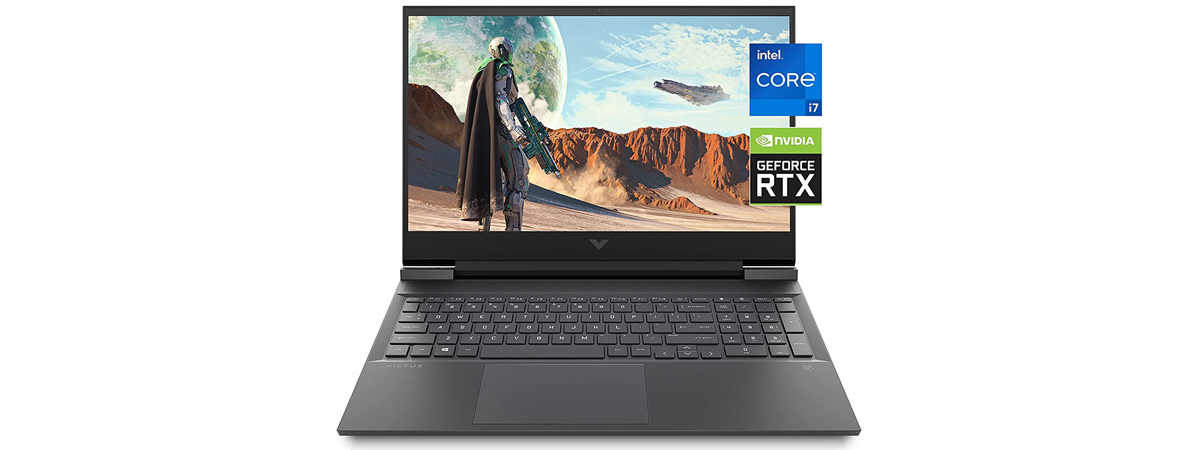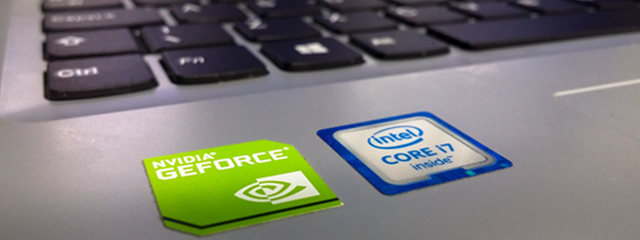
Gaming laptops come in a variety of configurations. People who want the best performance, tend to prioritize the processor over other hardware components, like the video card or the storage space. Many gamers prefer a laptop with an Intel Core i7 processors instead of an Intel Core i5. Many years ago, this choice made sense. But today, is this a good choice? We experimented with two gaming laptops, and we have learned that, for gaming, buying a system with Intel Core i7 is not the best choice you can make. Here's why, and what you should focus on instead:
The laptops that we used for testing: Lenovo Legion Y520
We had two Lenovo Legion Y520 gaming laptops available for testing. The Y520 is an affordable gaming laptop, with reliable build quality, efficient cooling system, backlit keyboard, and excellent price-performance ratio. If you want to know more about this gaming laptop, its strengths, and weaknesses, we recommend that you read this review.
The laptops we had are almost identical, with very few differences. To make it easy to tell them apart, one of them is red while the other is black. Both of them have 15.6" IPS LED displays with a Full HD resolution of 1920x1080 pixels.
Both come with Windows 10 Home installed, a 256GB NVMe SSD manufactured by Samsung, an Intel Graphics 630 onboard graphics chip and a dedicated NVIDIA GeForce GTX 1050 Ti video card, with 4GB of RAM. The only differences between them are that the black model has an Intel Core i7 7700HQ processor and 16GB of RAM, while the red model has an Intel Core i5 7300HQ processor and 8GB of RAM. Both processors are part of the same Kaby Lake family and were launched at the same time. The few technical improvements offered by the Core i7 over the Core i5 are the presence of Hyper-Threading, and a base processor frequency that is only 0.3 GHz higher.
Everything else on both laptops is the same, from the wireless network card to the onboard sound card, the Bluetooth chip, and so on. Therefore, most drivers are the same. We installed the latest updates for Windows 10 and all the latest drivers on both laptops. Then, we ran several tests and benchmarks, to compare the two laptops. Let's take each test one by one and draw our conclusions:
3DMark gaming benchmark: 1% improvement with Intel Core i7 7700HQ compared to Intel Core i5 7300HQ
First, we ran the popular 3DMark gaming benchmark from Futuremark, and the Time Spy test, with its default settings. The black laptop with the Intel Core i7 7700HQ processor had a score of 2436 points, while the red one with Intel Core i5 7300HQ had a score of 2406 points. This translates into a minor 1% performance improvement provided by the Core i7 7700HQ vs. Core i5 7300HQ.
There was a difference of less than one frame per second generated during this test, which is meaningless.
Tomb Raider: 1% improvement between Intel Core i7 7700HQ and Intel Core i5 7300HQ
Next, we used some games to evaluate the performance difference between the two processors. We started with Tomb Raider - an older title that looks great even by today's standards. We used the settings that you see below, on both laptops.
We noticed a minor 1% improvement in the average frame rate, provided by the Core i7 7700HQ processor vs. the Core i5 7300HQ.
This means that, in real life, you will not notice any performance difference between the two processors, when playing Tomb Raider.
Metro Last Light - no improvement between Intel Core i7 7700HQ and Core i5 7300HQ
We moved on to another great game: Metro: Last Light. This is a post-apocalyptic shooter with a great story that many gamers love. We used the graphics settings that you see below, on both laptops.
This time, there was no performance difference in the average number of frames per second that were rendered.
Intel Core i7 7700HQ did not manage to deliver any improvement in the average frame rate, versus Intel Core i5 7300HQ.
Hitman: 7% improvement between Intel Core i7 7700HQ vs. Core i5 7300HQ
We moved on to a newer title: Hitman - a popular stealth game in which you play the role of an assassin-for-hire. We used the graphics settings that you see below, on both laptops.
This time, we saw an improvement of 7% in the average frame rate, delivered by the Core i7 7700HQ processor.
We found it funny that the Intel Core i5 7300HQ managed to deliver one frame more when the game measured the maximum frame rate.
Boot time: no improvement between Intel Core i7 7700HQ and Core i5 7300HQ
Enough about gaming. Let's see other things that are important to a gamer. For example, we all want our PCs to boot as fast as possible. So we used Bootracer to measure the average boot time on both laptops. We found it surprising that the laptop with Intel Core i5 7300HQ managed to start, on average, two seconds faster than the one with Intel Core i7 7700HQ.
I think that it is clear from this test that the processor is not the primary factor in how fast your system's boot time is. Most probably the laptop with Intel Core i7 7700HQ booted slower because of a driver that took slightly longer to load.
Battery time: 30% less autonomy when using the Intel Core i7 7700HQ vs. Intel Core i5 7300HQ
Another important metric is the autonomy you get from your gaming laptop. We set Windows 10 to use the NVIDIA GeForce GTX 1050 Ti video card as the default, instead of the Intel Graphics 630 chip, and we ran PowerMark, and the Entertainment test that includes video and gaming workloads. The laptop with Intel Core i7 7700HQ lasted a lot less than the one with Intel Core i5 7300HQ: 34 minutes less or 30% less, if you want to convert the difference into percentages.
If you value autonomy, it is clear that Intel Core i5 7300HQ is a better choice than Intel Core i7 7700HQ.
PCMark 10: 14% improvement when using the Intel Core i7 7700HQ vs. Intel Core i5 7300HQ
Some gamers may also perform other activities on their gaming laptops. Things like video conferencing, photo editing, video editing, creating documents, and so on. To evaluate the difference between the two processors, for this type of activities, we used the PCMark 10 benchmark from Futuremark. This time, Intel Core i7 7700HQ delivered a 14% improvement in the average score, when compared to Intel Core i5 7300HQ.
Our comparison with PCMark 10 shows that using an Intel Core i7 7700HQ processor delivers more value when performing non-gaming activities, like office work, than when gaming.
Why isn't Intel Core i7 able to deliver meaningful improvement in games?
The main difference between the Intel Core i7 7700HQ and Intel Core i5 7300HQ processors is that the Intel Core i7 processor includes Hyper-Threading. This technology offers two processing threads per physical core, meaning that apps can get more work done in parallel, completing tasks sooner, by using eight processing threads in parallel, instead of four physical processor cores. Unfortunately, games tend not to take advantage of this technology. When they do use more than one processor core, they do not use more processing threads, just the physical cores. Therefore, games use the same four processor cores on the Intel Core i7 and the Core i5. They do not use the eight processing threads available on the Intel Core i7. As a result, games only benefit from the slight increase in the processor's base frequency that the Core i7 may provide over the Core i5. However, this base frequency difference may be too small in most cases, and it does not provide meaningful improvements.
Conclusion: if you are a gamer, buy a laptop with an Intel Core i5 processor and a better video card
Our tests have shown that purchasing the same gaming laptop with an Intel Core i7 processor instead of an Intel Core i5 does not deliver additional value for gamers. If you want to play games on your laptop, it is a better choice to invest your money elsewhere:
- Instead of a laptop with an NVIDIA GeForce GTX 1050 graphics card, buy one with an NVIDIA GeForce GTX 1050 Ti video card. The difference in performance is a lot more noticeable in games than when buying an Intel Core i7 instead of an Intel Core i5 processor.
- If you can afford to upgrade from an NVIDIA GeForce GTX 1050 Ti video card to an NVIDIA GeForce GTX 1060, the performance leap will be even higher. Also, you get to enjoy high-quality VR experiences, not only traditional gaming. The Intel Core i7 does not deliver the same improvement.
- If you upgrade the storage and get an SSD instead of an HDD, you will enjoy a high impact speed improvement, both when gaming and when using productivity apps. We have seen many laptops sold with an Intel Core i7 processor and classic HDD storage. You are wasting your money on the Intel Core i7 because the HDD drags down the speed and performance of the system. For gaming, as well as productivity, having an SSD drive is a must.
When is the Intel Core i7 a good investment? As the PCMark 10 benchmark has shown, this processor is worth buying when your goal is productivity, video editing, virtualization, and other business-oriented tasks. For home entertainment, get yourself an Intel Core i5 processor and invest more in the video card and the speed of your storage.
Do you agree with our conclusion?
We hope that you have found our experiment useful and that you agree with our conclusions. Before closing this article, share your view on this subject. Do you prefer an Intel Core i7 processor for gaming? Do you plan to invest more into your video card? Comment below and let's discuss.



 05.02.2018
05.02.2018 